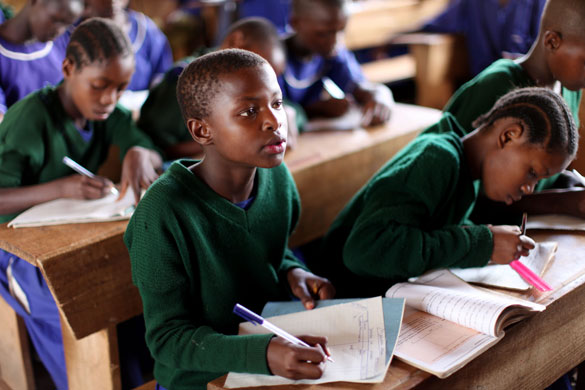How should we learn?
 Image source in2eastafrica.net
Image source in2eastafrica.net
With so much discussion currently on the Tanzanian education system and its subsequent impact on employees, organizational learning and the society at large, I found it pertinent to present here two important citations. The first is from Albert Einstein as quoted by Carl Rogers and Jerome Freiberg in the third edition of the book, Freedom to Learn published in 1994; first published by Carl Rogers in 1969. The second is an extract of the Table from Shana Ratner's 1997 publication on Emerging Issues in Learning Communities in which Shana provided the old and new answers to how we learn. Hopefully the powerful message in these citations stimulates you to follow and more importantly to contribute to the on-going debate on educational reforms.
"It is in fact short of a miracle that the modern methods of instruction have not yet entirely strangled the holy curiosity of inquiry; for this delicate little plant, aside from stimulation, stands mainly in the need of freedom; without this it goes to wrack and ruin without fail." - Albert Einstein (from Freedom to Learn by Carl Rogers and H. Jerome Freiberg)
| Old Answers | New Answers |
|---|---|
| Knowledge is a "thing" that is transferred from one person to another. | Knowledge is a relationship between the knower and the known; knowledge is "created" through this relationship. |
| Knowledge is objective and certain. | Knowledge is subjective and provisional. |
| Learners receive knowledge. | Learners create knowledge. |
| We learn in the same way. | There are many different learning styles. |
| Knowledge is organized in stable, hierarchical structures that can be treated independently of one another. | Knowledge is organized "ecologically"; disciplines are integrative and interactive. |
| We learn best passively, by listening and watching. | We learn best by actively doing and managing our own learning. |
| We learn alone, with our minds, based on our innate abilities. | We learn in social contexts, through mind, body, and emotions. |
| We learn in predictable sequences from simple "parts" to complex "wholes". | We learn in wholes. |
| Our "intelligence" is based on our individual abilities. | Our intelligence is based on our learning community. |
The Table above shows a shift in the teacher student relationship. Of particular interest is the shift from the consideration of learning as a transaction to regarding it as a process that eliminates the separation of teacher from student and replaces it with dialogue to encourage joint responsibility for learning and growth. It is clear from the Table that much of the learning in our schools and organizations is related to the old answers. Making the required paradigm shift requires asking serious questions in the ways learning is both packaged and delivered and the whole culture and purpose of learning as they apply to schools and organizations.